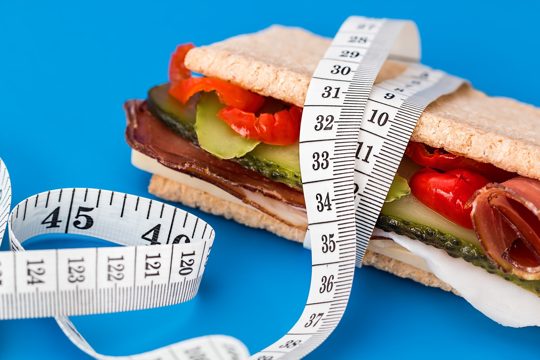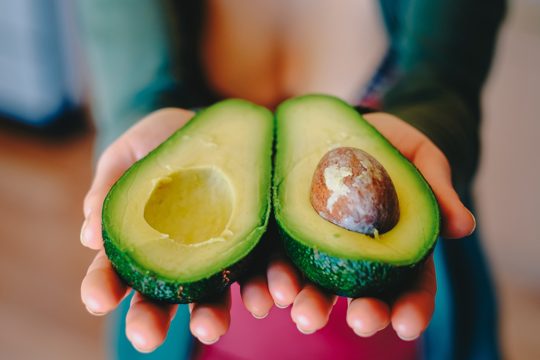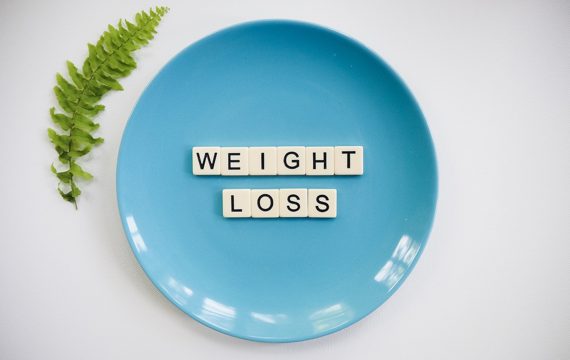How Long Does It Take to Lose Weight?
Understanding how long it takes to lose weight can be a tricky business. It depends on a variety of factors, including your starting point, gender, age, and more.
Here are some insights to help you understand the process better. Delving into the understanding of weight loss duration can indeed be a complex affair. It's an enigma that is intertwined with a myriad of elements, each with its unique influence on the overall timeline. Factors such as your current weight, gender, age, and even your genetic makeup can play a significant role in the process. Additionally, your habits, lifestyle, and general health condition also contribute to how your body responds to a weight loss regimen. Let's not forget that everyone's body is distinct and reacts differently to changes in diet and exercise, which further adds to the variability.

To make this journey a little less perplexing, we've compiled some insights drawn from various studies and expert opinions, designed to shed light on this multifaceted process. These insights will not only help demystify the puzzle of weight loss duration but will also empower you to set realistic expectations and goals for your weight loss journey.
They underscore the importance of patience, consistency, and a holistic approach towards weight loss, encouraging you to focus on gradual, sustainable changes rather than quick fixes. On top of this, it's imperative to remember that while understanding the process is crucial, what truly matters is your commitment to a healthier lifestyle. After all, weight loss is not just about shedding pounds, but more about embracing a lifestyle that promotes well-being and longevity. So, whether you're just starting on your weight loss journey or are already in the midst of it, these insights will help you comprehend the process better, making your journey towards a healthier you more manageable and rewarding.
How Weight Loss Occurs
Weight loss occurs when the body is in a state of calorie deficit, which means you are burning more calories than you consume. This can be achieved through diet, exercise, or a combination of both.
Weight loss, a widely discussed topic in today's health-conscious society, is a process that takes place when the body enters a state of calorie deficit. This, in essence, signifies that your body is effectively burning more calories than it is taking in, leading to a reduction in overall body weight. This can be a simple concept to understand, but a challenging one to implement, as it involves careful regulation of one's diet and physical activity. The first and often most critical aspect of achieving a calorie deficit is through dietary adjustments. These adjustments can range from reducing portion sizes, eliminating high-calorie, low-nutrition foods, to adopting a balanced and nutritious diet. It's about making informed eating decisions that not only fulfill your taste buds but also provide your body with the energy it needs to function optimally. However, dieting alone may not always produce rapid results. This is where physical activity comes into play.

Regular exercise, whether it's cardio, strength training, or a blend of both, can significantly increase the number of calories you burn daily, and therefore, accelerate the process of weight loss. It's all about finding an exercise regimen that you enjoy and can stick to, making it a sustainable part of your lifestyle.
However, the most effective approach to weight loss usually involves a combination of both diet and exercise. This dual approach allows you to create a calorie deficit through dietary modifications and further enhance it with regular physical activity. It's about crafting a lifestyle where healthy eating habits and consistent exercise coexist, leading to long-term, sustainable weight loss. In summary, weight loss is a journey that requires commitment, discipline, and patience. It's a journey that requires you to make conscious choices about what you eat and how much you move. But remember, every journey begins with a single step. So, start taking those steps today, and before you know it, you'll see the fruits of your labor.
Thermic Effect of Activity
The thermic effect of activity is the amount of calories your body burns during physical activity. This depends on the type, duration, and intensity of the activity.
Therefore, regular exercise can help to increase your calorie deficit and speed up weight loss. The thermic effect of activity, often referred to as exercise-induced energy expenditure, is essentially the number of calories your body incinerates during physical exertions. It's an intriguing component of your total energy expenditure, accounting for approximately 15-30% of the total calories you burn in a day. The fascinating thing about this is that it's not a rigid, fixed number. It fluctuates based on several factors, such as the type, duration, and intensity of the activity you're engaged in. For instance, a leisurely walk around the block will not burn as many calories as an intense CrossFit session. Similarly, a 15-minute jog won't have the same thermic effect as a marathon run.

It's all about the energy you put into the exercise. The more intense and prolonged the activity, the higher the thermic effect, and consequently, the greater the number of calories burned.
Therefore, the incorporation of regular exercise into your daily routine can significantly augment your calorie deficit, which is essentially the difference between the calories you consume and the calories you burn. By enhancing this deficit, you are creating an energy shortage in your body that it needs to compensate for. And it does this by burning stored fats, thereby speeding up the weight loss process. So, the thermic effect of activity is not just an interesting physiological phenomenon; it's a potent tool that can help you sculpt your body and improve your health. Harness its power, and you'll be well on your way to achieving your fitness goals.
Thermic Effect of Food
The thermic effect of food is the energy required for digestion, absorption, and disposal of food. Some foods require more energy to digest than others, which can contribute to weight loss.
The thermic effect of food, or TEF, is a fascinating concept that refers to the energy expended by our bodies in order to digest, absorb, and effectively discard the food we consume. This process is an integral part of our body's metabolic function, burning calories in the process. Interestingly, not all foods are created equal in this regard - some demand a significantly higher amount of energy to be broken down, compared to others. In the context of weight loss, this is a key factor that often goes overlooked. For instance, consuming foods that have a high thermic effect can help you burn more calories throughout the day, thereby creating a calorie deficit. This deficit is essentially what leads to weight loss - when your body uses more energy than it takes in, it starts to burn stored fat to make up for the shortfall.

To further illustrate, let's think of your body as a machine. A machine requires fuel to run efficiently, and the quality of that fuel can greatly affect its performance.
In this analogy, foods with a high thermic effect are the premium fuel - they force your body to work harder, thereby increasing its calorie burn. Therefore, by consciously incorporating such foods into your diet, you may potentially accelerate your weight loss journey. In conclusion, the thermic effect of food is not just about digestion and disposal. It's a complex, fascinating process that plays a crucial role in our body's metabolism and can be strategically used in weight management. It's an example of how understanding the science behind our everyday activities can empower us to make healthier, more informed choices.
Resting Metabolic Rate
Your resting metabolic rate is the number of calories your body needs to perform basic functions at rest. This rate can be affected by factors such as age, gender, and muscle mass.
Your resting metabolic rate, often abbreviated as RMR, is a vital concept to understand when it comes to your overall health and wellbeing. This refers to the number of calories your body requires to perform its most basic functions when you are not engaged in any physical activities. In essence, this is the minimum energy expenditure your body needs to maintain crucial operations like breathing, circulating blood, regulating body temperature, and cell production, all while at rest. However, it's important to note that this rate is not the same for everyone - it can be influenced by a number of factors. Age, for instance, plays a significant role in determining your resting metabolic rate. As you age, your metabolism naturally slows down, indicating a decrease in the RMR.

Gender is another influencing factor. Men tend to have a higher RMR than women due to having more muscle mass, which burns more calories than fat.
Speaking of muscle mass, it's another key determinant of your RMR. A higher muscle mass means a higher metabolic rate, as muscles are more metabolically active compared to fat tissues. This is one of the reasons why consistent strength training can help in boosting your metabolism. In conclusion, understanding your resting metabolic rate can provide crucial insights into your energy expenditure and can guide you in making informed decisions about your diet and exercise routine. By considering factors like age, gender, and muscle mass, you can better understand your body's needs and work towards maintaining or improving your overall health.
Factors Affecting Weight Loss
Several factors can affect your weight loss journey, including your gender, age, starting point, and even your sleep habits. Other factors can include medical conditions, medications, and your family history and genes.
Embarking on a weight loss journey is a unique, personal endeavor that is impacted by a myriad of factors, many of which you may not initially consider. Your gender plays a significant role, primarily because men and women's bodies tend to store and burn fat differently due to hormonal differences. Age is another crucial element, as our metabolism naturally slows down as we age, making weight loss potentially more challenging. Furthermore, your starting point is critical too. If you're significantly overweight, you might see quicker results initially compared to someone who's just aiming to lose a few pounds. However, that doesn't necessarily mean the journey is easier. A higher starting weight can also mean that you might have to put in more work and effort to keep the weight off in the long run. Sleep, often overlooked, is a silent yet influential player in your weight loss journey.

Proper sleep habits are essential for weight loss, as lack of sleep can disrupt your metabolism and increase your appetite, leading to weight gain. A consistent sleep schedule, along with high-quality sleep, can help regulate your body's internal processes, supporting healthier weight loss.
Medical conditions, such as hypothyroidism or polycystic ovary syndrome (PCOS), can significantly affect your ability to lose weight. Similarly, certain medications may cause weight gain or make it harder for you to lose weight. It's essential to consult your healthcare provider about these factors to ensure your weight loss plan accommodates them effectively. Lastly, your family history and genes can also influence your weight loss journey. Some people are genetically predisposed to gain weight more easily than others, while others may have a family history of obesity, making weight loss more challenging. It's important to understand these genetic factors and work with them, not against them, to achieve your weight loss goals. By understanding these factors and how they apply to you, you can tailor your weight loss journey to your unique circumstances, making it more effective and sustainable.
Gender
Gender can influence weight loss. Men typically have more muscle mass than women, which can lead to a higher metabolic rate and faster weight loss.
Expanding on the fascinating realm of how gender plays a pivotal role in the weight loss journey, it becomes crystal clear that men and women aren't on equal footing due to biological differences. One of the most significant disparities is that men generally possess a greater amount of muscle mass compared to women. This leads to a crucial advantage in the weight loss battle. Why does muscle mass matter, you ask? Well, the answer is directly tied to the body's metabolic rate. The metabolic rate is essentially the speed at which your body burns calories for energy. The higher the metabolic rate, the more calories are burned, and consequently, faster weight loss can be achieved.

In this case, men, having a greater amount of muscle mass, naturally have a higher metabolic rate. This means that they can potentially lose weight at a quicker pace than women, given the same diet and exercise conditions.
However, it's important to remember that each individual's body is unique and responds differently to weight loss strategies. Factors such as age, lifestyle, and overall health can also significantly impact weight loss progress. Therefore, while gender can indeed influence weight loss, it's only one piece of the puzzle. The key is to understand your body, find a balanced diet and exercise regimen that works for you, and most importantly, aim for a healthy lifestyle rather than just focusing on shedding pounds.
Age
As you age, your metabolic rate tends to slow down, which can make weight loss more challenging. However, regular exercise and a balanced diet can help counteract this effect.
As we journey through the years, one of the inevitable realities we all face is the slow but steady decrease in our metabolic rate. This physiological change often makes it seem like an uphill battle to shed those stubborn pounds and maintain a healthy weight. However, this doesn't have to be the end of the story. You can effectively counteract and manage this age-related slowdown by incorporating regular physical activity and a balanced, nutritious diet into your daily routine. Exercise, specifically a combination of both strength training and cardiovascular workouts, can significantly boost your metabolism and help you burn more calories, even while at rest.

By ensuring your body is consistently moving and working, you'll be effectively stoking the furnace of your metabolic rate, helping to combat the slower pace it may want to settle into. In addition to regular exercise, embracing a balanced diet rich in lean proteins, whole grains, fruits, and vegetables can also play a pivotal role in managing your metabolism.
These nutrient-dense foods not only provide the fuel your body needs to function optimally but also require more energy to digest, thereby promoting a more efficient metabolic rate. So, while aging may naturally bring about a slower metabolic rate, don't let this deter you. With the dual approach of regular exercise and a balanced diet, you can give your metabolism the boost it needs, making weight loss less challenging and more achievable. Remember, it's never too late to start making positive changes and every step you take can make a significant difference in your health and well-being.
Starting Point
Your starting point can greatly influence how quickly you lose weight. Those with a higher body mass index (BMI) may lose weight more quickly at the beginning of a weight loss program.
Your starting point can significantly impact the pace at which you shed those extra pounds. It's fascinating to note that those with a higher Body Mass Index (BMI), a measure that takes into account your weight relative to your height, may experience a more rapid weight loss at the onset of a dedicated weight loss regimen. This is largely because when you carry more weight, you burn more calories doing the same activities as someone who's lighter. This is not to say that those with a lower BMI cannot lose weight. It simply means that the journey might be a bit slower, but it's equally rewarding. However, it's essential to understand that while the initial weight loss might be significant, it doesn't always translate to long-term success. The key to sustainable weight loss lies in consistent healthy habits.

This includes a balanced diet rich in lean proteins, whole grains, fruits, and vegetables, regular physical activity, and good sleep hygiene. Moreover, it's vital to remember that each person's body responds differently to weight loss strategies.
So, it's crucial to have patience and not get discouraged if results don't show up immediately. Lastly, it's always recommended to seek professional advice before embarking on a weight loss journey. A registered dietitian or a professional fitness trainer can provide personalized guidance based on your health status and fitness goals. They can help you devise an effective weight loss plan that is safe, realistic, and tailored to your needs. So, no matter where you're starting from, remember that the journey to weight loss is a marathon, not a sprint. With the right approach, you are sure to reach your goal.
Calorie Deficit and Sleep
Creating a calorie deficit is key to weight loss. However, lack of sleep can interfere with your ability to maintain a calorie deficit by increasing hunger and cravings.
Creating a calorie deficit is undeniably the cornerstone of sustainable weight loss. It's the simple yet effective principle of consuming less energy than you expend, thus compelling your body to tap into its stored fat reserves for that extra boost. However, it's also crucial to understand that your lifestyle factors can significantly influence your ability to maintain this deficit. One such critical factor being sleep, often overlooked, yet vital to your weight loss journey. Let's understand the interplay of sleep and weight loss a little more deeply. When you're not getting enough sleep, it's not just your energy levels that are plummeting, but your weight loss efforts could be getting derailed too.

During periods of sleep deprivation, your body experiences a spike in ghrelin, the hormone that triggers feelings of hunger, and a decrease in leptin, the hormone that signals fullness. This hormonal imbalance can lead to increased hunger and cravings, often for high-calorie, sugary foods, making it challenging for you to stick to your calorie deficit plan.
Moreover, lack of sleep can also lead to decreased physical activity, which further undermines your calorie-burning efforts. When you're tired, you're less likely to hit the gym or even engage in everyday physical activities, which means you'll inevitably burn fewer calories. So, don't just focus on your diet and exercise; ensure you're getting a good night's sleep too. Remember, weight loss is a holistic journey, and sleep is a significant part of this journey. So, ensure you're getting your 7-9 hours, and watch how your body responds positively to your weight loss efforts.
Other Factors: Medications, Medical Conditions, and Genetics
Certain medications and medical conditions can make weight loss more difficult. Additionally, your genetics can affect your ability to lose weight, as can patterns of yo-yo dieting.
Indeed, the struggle to lose weight isn't always as straightforward as "eat less, move more. " It's important to understand that certain medications and medical conditions can significantly impact your weight loss journey. Medications such as antidepressants, antihistamines, and even some diabetes medications can make it more challenging to shed those extra pounds. Similarly, medical conditions like hypothyroidism, polycystic ovarian syndrome (PCOS), and metabolic syndrome can also slow down or impede your weight loss efforts. Moreover, your genetic makeup also plays a crucial role in determining your body weight. Some people are genetically predisposed to carry more weight than others. This doesn't necessarily mean that weight loss is impossible, but it does mean that you may have to work harder to achieve and maintain your weight loss goals.

Genetic factors can affect your metabolism, appetite, and even how your body processes food. Finally, the pattern of yo-yo dieting, or the cycle of losing and then regaining weight, can wreak havoc on your metabolism, making it harder to lose weight each time you try.
This pattern can create a vicious cycle that not only demoralizes you but also makes your weight loss journey tougher each time. It's important to break this cycle and aim for sustained, long-term lifestyle changes rather than quick fixes. In conclusion, when it comes to weight loss, it's essential to consider a variety of factors including medications, medical conditions, genetics, and your dieting history. Understanding these obstacles can help you tailor your weight loss plan and set achievable, sustainable goals. Remember, it's not just about the number on the scale; it's about overall health and wellbeing.
Best Diet for Weight Loss
The best diet for weight loss is one that you can stick to. This often includes a balanced diet rich in whole foods, fruits, vegetables, lean proteins, and healthy fats.
Weight loss foods and meal plans can help guide your eating habits. The paramount diet for shedding those extra pounds is not just about what you eat, but also about finding a food regime that harmoniously aligns with your lifestyle and preferences. It's one that you can adhere to consistently, without feeling like you're punishing yourself or sacrificing too much. This kind of diet is often characterized by a balanced and diverse selection of wholesome foods. Think of vibrant, nutrition-packed fruits and vegetables, lean proteins that keep you satiated, and healthy fats that fuel your body and mind.

Picture a rainbow of fresh produce, crunchy nuts and seeds, and heart-healthy oils, all working together to nourish your body while helping you maintain a healthy weight. Weight loss-friendly foods and thoughtfully curated meal plans can act as your personal roadmap to healthier eating habits.
They set the stage for success by taking the guesswork out of what to eat and when. Imagine having a personalized menu of delicious, nutrient-dense meals that not only aid your weight loss journey but also tantalize your taste buds and keep you excited for every meal. In essence, the key to effective weight loss is embracing a diet that celebrates variety, balance, and enjoyment. It's about learning to love the journey as much as the destination, and understanding that healthy eating doesn't need to be punitive, but rather a flavorful and fulfilling part of your daily life.
Safe Rates of Weight Loss
A safe rate of weight loss is typically 1-2 pounds per week. While it may be tempting to lose weight fast, slow and steady weight loss is more sustainable and healthier in the long term.
A healthy and safe rate of weight loss is generally considered to be 1-2 pounds per week. This may not seem like a lot, but think of it this way: if you consistently lose this amount, you could be 4-8 pounds lighter by the end of the month! While it's understandable to want to shed those extra pounds rapidly, especially if you're eager to fit into that dress or suit for an upcoming special occasion, it's crucial to remember that a slow and steady approach to weight loss is far more sustainable and healthier in the long term. Rapid weight loss methods might offer immediate gratification, but they often lead to a vicious cycle of losing and regaining weight, also known as 'yo-yo dieting. ' This can be detrimental to both your physical and mental health.

On the other hand, adopting a gradual approach to weight loss allows your body to adjust to the changes more naturally, reducing the risk of health complications. It also gives you the time to instill healthy habits that you can maintain even after you've reached your weight loss goal, ensuring that you maintain your new weight.
So, the next time you feel frustrated with the slow progress, remind yourself that you're not just losing weight, but you're also building a healthier lifestyle that will benefit you for years to come. Patience, perseverance, and consistency are key in this journey. Remember, it's not just about reaching your goal weight, but about embarking on a journey towards long-term health and wellness.
Injections for Weight Loss and Exercise
Some people may choose to use injections for weight loss, although these should always be administered under the guidance of a healthcare professional. Regular exercise is also crucial for weight loss and can help you lose belly fat fast.
While there are those who might opt for weight loss injections as a means to shed excess pounds, it is critical to remember that such methods should always be performed under the strict supervision of a seasoned healthcare professional. These injections, often comprising vitamins and other substances, are designed to boost metabolism or decrease appetite, aiding in the weight loss journey. However, their usage can also be accompanied by certain risks or side effects, hence the need for professional guidance. It's not just about popping the injections and waiting for the magic to happen; it's about ensuring that the process is safe and effective for your unique body and health condition. Moreover, regular exercise is not just beneficial, but vital for successful weight loss and overall health. It's a proven method that can help you lose belly fat quickly and in a healthy manner. But remember, not all exercises are created equal.

A combination of cardio workouts, strength training, and flexibility exercises can provide the best results. Whether it's running, swimming, weightlifting, or yoga, find something you enjoy and that suits your fitness level.
Consistency is key - make sure to maintain a regular exercise routine to keep the momentum going. In conclusion, taking the decision to lose weight is a significant commitment to your health. Whether you opt for weight loss injections or stick to a rigorous exercise regimen, it's about adopting a lifestyle that promotes long-term wellbeing. Always consult with a healthcare professional to ensure you're taking the safest and most effective route towards your weight loss goals. Remember that every step, every sweat, and every healthy choice brings you closer to a healthier, happier you.
Chrissy Metz Weight Loss Journey
Celebrities like Chrissy Metz have shared their weight loss journey, inspiring many to embark on their own. Remember, everyone's journey is unique and what works for one person may not work for another.
Prominent figures from the world of glitz and glamour, such as the radiant Chrissy Metz, have openly and courageously revealed their weight loss journeys, providing a beacon of motivation for many individuals worldwide to embark on their own wellness odysseys. Their narratives of transformation, filled with perseverance, resilience, and determination, have served as empowering testimonies that inspire us to take control of our health, to embrace our individuality, and to rewrite our own stories. However, it's crucial to understand that every journey is as unique as the individual undertaking it. Just as no two snowflakes are identical, the path to health and well-being is also different for everyone. What works for one person may not necessarily work for another due to differences in body type, metabolism, lifestyle, and numerous other factors.

The ‘one-size-fits-all’ approach does not apply to health and fitness. Therefore, when taking inspiration from the likes of Chrissy Metz and others, it's essential to remember to listen to your own body, to understand its unique needs and requirements, and to tailor a plan that suits you best.
It might involve trial and error, and there will likely be obstacles along the way, but remember that this is your journey, no one else's. Patience, commitment, and self-love are key to reaching your goals. As you embark on this journey, remember to celebrate each milestone, no matter how small, for each step you take brings you closer to your ultimate goal. So, get inspired, get started, and embrace the uniqueness of your journey to a healthier you.
Conclusion
Losing weight takes time and patience, but understanding the factors that influence it can help you make informed decisions about your diet and exercise plan. Remember, the goal of weight loss should always be health and wellness, rather than achieving a certain number on the scale.
Losing weight is indeed a journey, one that requires time, patience, and a deep commitment. It's a process that demands a sustained effort, a journey that doesn't happen overnight, but over days, weeks, and months. However, by understanding the factors that influence weight loss, you can empower yourself to make informed decisions regarding your diet and exercise plan. This might involve learning about the intricacies of nutrition, how certain foods affect your body, and the optimal times to eat. It could also mean discovering the types of exercises that not only burn calories but also build strength and endurance. But beyond the science and statistics, it's crucial to remember that the ultimate goal of weight loss should always be health and wellness.

This is not merely about reaching a specific number on the scale or fitting into a certain dress size. Rather, it's about nurturing your body, enhancing your wellbeing, and cultivating a lifestyle that promotes longevity and vitality.
It's about feeling energetic and confident, about reducing the risk of disease, and about improving your quality of life. So as you embark on this journey, don't be too hard on yourself. Celebrate every small victory, every step closer to a healthier, happier you. Because weight loss is not just about the destination, it's about the journey and the person you become along the way.
About us
Welcome to HealsHub! Your go-to source for all things related to health and wellness! We're here to help you lead a healthier, happier life by providing you with the latest news, research, and advice on topics like nutrition, fitness, mental health, and more. Our mission is to empower you to take control of your health and well-being through education and inspiration. Whether you're looking to lose weight, build muscle, manage stress, or simply learn more about how your body works, you'll find everything you need right here on healshub.com. We believe that everyone deserves to live a healthy, fulfilling life, and we're committed to providing you with the tools and resources you need to achieve your goals. So take a look around, explore our articles and resources, and start your journey towards better health today!

